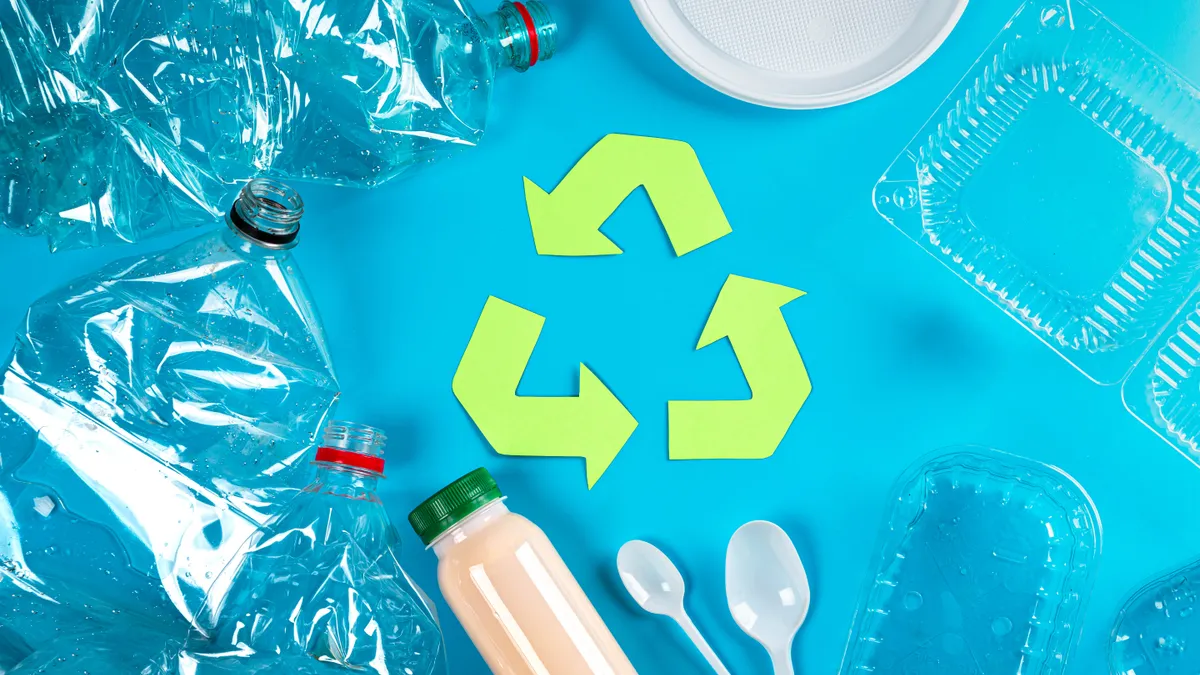Dive Brief:
- The Federal Trade Commission will seek public comment on how to update its Green Guides, a document for how to market environmental claims without being deceptive. The commission voted Wednesday to start its regulatory review process of the document and will begin taking comments in mid-January.
- The commission specifically asks for input on terms such as “recycled content” and “recyclable,” in addition to guidance on products that claim to be “compostable,” “sustainable” or “degradable.”
- FTC also seeks feedback on whether it should look into claims for products that are collected curbside “by recycling programs but not ultimately recycled,” as well as claims about “pre-consumer” and “post post industrial” content.
Dive Insight:
The Green Guides have not been updated since 2012, and recyclers, packaging manufacturers, trade associations and others in the industry have been eagerly anticipating the FTC’s latest review. They say fresher guidance will better encompass the types of products currently in the market, as well as the infrastructure and technology available today to handle such materials. Since the Green Guides document was last updated, states such as California and Oregon have pursued “truth in labeling” laws and questioning the validity of the chasing arrows label on products and packaging.
The FTC says consumers increasingly are interested in buying products that are environmentally friendly, but the average American has few ways of verifying such claims. At the same time, many consumers believe certain plastics are recyclable but are ultimately ending up in landfills, said FTC Chair Lina Khan in a statement. That could spur the FTC to consider whether recyclability claims “should reflect where a product ultimately ends up, not just whether it gets picked up from the curb,” she said.
The FTC says it’s also interested in further investigating claims of carbon offsets or products that claim to be organic.
“These guides have to keep pace with developments in both science and consumer perception,” Kahn said during the meeting. “It's critical that businesses are making truthful claims and representations. When you have deceptive claims, that can distort the market for environmentally friendly products and also hurt honest companies who are bearing the cost of green business practices.”
The FTC is expected to issue a notice in the Federal Register announcing the open public comment period sometime in mid-January, and will take comments for 60 days after, it said.
The Consumer Brands Association says it “wholeheartedly” supports updates, saying consumers are confused by conflicting messages about how to recycle an increasingly diverse range of products. At the same time, “there is a lack of clarity for consumer and regulatory certainty for industry that has been exacerbated by lack of uniform federal standards, a patchwork of state approaches to environmental claims and recycling systems, as well as litigation,” the organization said in a letter.
The debate over chemical recycling, known as advanced recycling in the plastics industry, is another issue that has gained prominence since the last Green Guides update, said Prapti Muhuri, manager of recycling and recovery at the American Chemistry Council. During the meeting, she asked the FTC to include clearer guidance about advanced recycling in its latest update. ACC sees the technologies as an important way to recycle more plastic, but some environmental groups say the process could be environmentally hazardous.
Updated Green Guides could also help support environmental justice communities that already bear the brunt of air and water pollution, said Yuwa Vosper, policy and regulatory manager for WE ACT for Environmental Justice. Deceptive labeling practices are a particular concern for Black consumers, particularly Black women, who are “disproportionately exposed to toxic chemicals” in hair care and other products compared to White women, she said during the FTC meeting.











